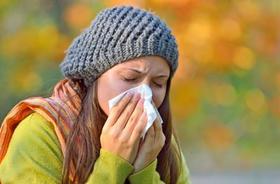
In 1982, John Vane won a knighthood and a Nobel Prize for his work on Cox-2, an enzyme found in every cell of your body. He showed that when turned on, Cox-2 makes eicosanoids, a group of hormones that each last one to five seconds. You may have heard of prostaglandins – they are the eicosanoids that are active in rheumatism and arthritis.
Vane showed that three compounds turned Cox-2 on – steroids, the hormone insulin and the stress hormone, cortisol.
In 2014, a group at Yale Medical School went further and showed that eicosanoids could affect two cancer causing genes. Chronic inflammation causes chronic illness There is a fundamental truth in health. Chronic inflammation is the precursor to chronic illness. And in cancer especially, chronic inflammation helps a cancer spread. In type-2 diabetes, a precursor has been shown to be inflammation in the pancreas. Even healthy people become stressed from time to time. Their brains send a message to their adrenal glands, which produce cortisol and epinephrine. Cancer is not stupid. UCLA have studied stress and cancer extensively. They have shown that cortisol and epinephrine increase when you have cancer. Cancer by-passes the brain and gives the adrenals a kick. Cancer loves this as the host’s cells throughout the body become even more inflamed. The Cox-2 system is all over your body. But stress has a second effect. It upsets your gut bacteria. Estimates suggest that you have up to 90 trillion bacteria in your gut. You have only 7 trillion cells and, not surprisingly, experts in America are calling this ‘The largest organ in your body’. It also has at least 75,000 genes whereas your cells only have 25,000. It makes more compounds, proteins, messages than you make. These direct your metabolism, your moods and even how you think. Experts call it your ‘Second Brain’. Of course, everybody now understands that drugs, especially antibiotics and Proton Pump Inhibitors can damage the good (commensal) bacteria. This allows an increased presence of yeasts and pathogens in the gut as normally the good guys overwhelm the bad. All bacteria and yeasts in the gut, good and bad, make chemicals, from vitamins to toxins. These chemicals can either pass in the blood to the brain, or send messages there via the vagus nerve. It’s not you that has a sweet tooth, it’s the yeasts in your gut asking for more. These inhabitants direct the host to provide all their required home comforts.
While drugs can kill the good gut bacteria, many things can affect the environment in the gut causing the same sort of good-bad imbalance. For example, smoking, pickled foods and too much salt can change the acidity or alkalinity in the gut, inhibiting certain bacteria from ‘working’ properly. This doesn’t just affect the compounds they make, but their growth and their numbers. And stress and sleep, for example send chemicals to the gut that have a similar effect. Believe it or not, your gut bacteria have circadian rhythms like you have. You produce melatonin when you sleep and this sends a message to them. They actually produce melatonin too! And it is the biggest antioxidant we animals make and it is very anti-inflammatory. Add these together and you can see why sleep is so healing. But disturb this process (as happens with stress) and imbalance occurs. For example, people with IBS have more gut pain after a sleepless night. The gut became leakier. Stress can literally make you ‘sick to your stomach’. And, guess what? Certain good gut bacteria are responsible for producing anti-inflammatory compounds. If you become stressed, the gut pH changes, your good guys shut down and instead you make inflammatory compounds in your gut. 35 per cent on the circulating small molecules in your blood come from the gut. Your stress is poisoning your friends in your gut, and they in turn poison your body. It’s called the gut-brain axis. It’s a two-way process. Your good gut bacteria can make B vitamins like choline and inositol that cross the blood-brain barrier and nourish your brain. But cause the commensal bacteria problems and their numbers dwindle leaving pathogens stronger. For example, in dementia plaque structures build up in the gut. The immune system comes out to attack. But plaque that has built up in the brain is simultaneously attacked. Inflammation and destruction of brain cells occurs. You are a Super-Organism. Research has shown your gut bacteria become ill first, and then you become ill. Worse, you cannot become better until they become better. Understand this and you understand there is a factual chemical factor from emotion and stress in every illness and every cure. Chris Woollams
0 Comments
Leave a Reply. |
The Holistic Life CoachHolistic & Natural Solutions for Health and Wellbeing Categories
All
Archives
March 2018
|
COOKIE POLICYWe use cookies on this site to help us improve your experience. If you wish to understand fully how we use these, click through for our 'cookie policy'.
PRIVACY POLICY |
disclaimerAll material on this website is provided for your information only and may not be construed as medical advice or instruction. |
Contact UsSubscribeJoin our mailing list today!
|


 RSS Feed
RSS Feed